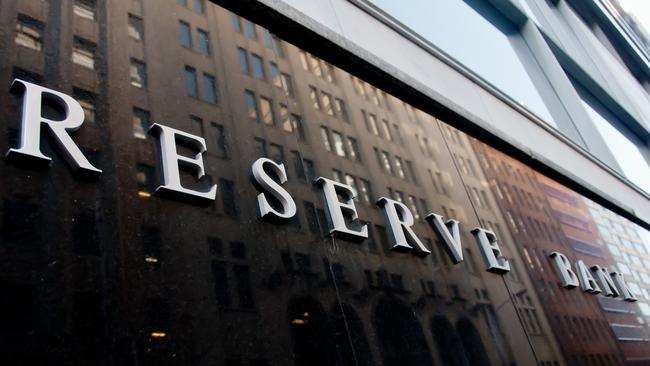Reserve Bank uncertain over need for central bank digital currency
The RBA has stepped up research on a central bank digital currency in Australia, while issuing a stern warning on enthusiasm in the crypto market.

The Reserve Bank remains sceptical of the need for a central bank digital currency in Australia, but has stepped up its research on the subject.
In a speech on the Future of Payments to the Australian Corporate Treasury Association, the RBA’s head of payments policy, Tony Richards, said the nation’s recently upgraded electronic payments system already provided households and businesses with a wide range of safe, convenient and low-cost payment services, evidenced by the fast delivery in recent months of more than 19 million Covid support payments.
He also warned of scenarios that could “significantly challenge the current fervour of cryptocurrencies”.
“More broadly, much – if not all – of the innovation and new functionality that could potentially be enabled by CBDC could in principle also be enabled by innovation based around commercial bank deposit accounts, e-money or stablecoins,” he said.
But the RBA acknowledges that with the innovation that is occurring in the payments area globally, the provision of a new digital form of central bank money for general purpose use could be important for “safeguarding confidence in national monies and the role of fiat currencies at the heart of monetary, financial and payment systems”.
“In addition, there appears to be growing recognition that the network effects inherent in payments could result in large (walled-garden) technology companies or payment schemes coming to dominate the payments industry,” Mr Richards said.
“So there could be potential benefits arising from central banks issuing general-purpose CBDCs that might be used by different types of entities, including non-bank payment providers, to offer transfers between digital wallets of households and merchants.”
By introducing CBDCs, central banks would “not be getting into the retail payments business, but they would be providing a riskless and interoperable form of digital money that could potentially stimulate competition between different private sector service providers”.
Given the possibility that the balance could shift towards a case for issuance of retail CBDCs, the Reserve Bank has been “stepping up its CBDC research”.
“Supporting the evolution of payments is one of the six strategic focus areas in the bank’s strategic plan, and research on CBDC is a key element of this,” Mr Richards said.
“The bank is looking to do experiments around retail CBDC and we are currently engaging with the new Digital Finance Cooperative Research Centre on possible projects – the bank is one of the 29 founding entities that will work through the CRC to explore the opportunities arising from the digitisation of assets.”
As for wholesale CBDC, the bank has been conducting research on the technological and policy implications for several years, based on a view that it was more likely that a case for issuance could emerge in that segment.
Project Atom has extended the earlier proof-of-concept, including by incorporating a tokenised financial asset in the form of a tokenised syndicated loan, and by exploring the implications of delivery versus payment settlement on a DLT platform.
The RBA is also working on Project Dunbar with the BIS Innovation Hub and the central banks of Malaysia, Singapore and South Africa. It aims to develop prototype shared platforms for cross-border transactions using CBDCs of many different jurisdictions.
“Such platforms could allow financial institutions to transact directly with each other in CBDCs, eliminating the need for intermediaries and potentially improving the speed, cost and transparency of wholesale cross-border transactions,” Mr Richards said.
But while cryptocurrencies have “captured the attention of many” he said it was “unclear how widely held they are”.
Statistics claiming that around that around 20 per cent of the Australian population hold cryptocurrencies were “somewhat implausible”.
“I cannot help thinking that the online surveys they are based on might be unrepresentative of the population,” he said.
“So while it is hard to point to any firmer evidence on cryptocurrency holdings by Australians, some of the estimates out there are extremely surprising and may be symptomatic of the significant amount of hype and misinformation in this area.”
He has had a cryptocurrency wallet since June 2014 as “part of my job is to try to understand new payment instruments and technologies.”
But Mr Richards warned that cryptocurrencies had “no intrinsic value, typically do not have any issuer standing behind them, and rely on users’ trust in the software protocol that controls the system.”
“I think there are plausible scenarios where a range of factors could come together to significantly challenge the current fervour for cryptocurrencies, so that the speculative demand could begin to reverse, and much of the price increases of recent years could be unwound,” Mr Richards said.
“If there were to be global policy action to deal with some particular concerns about the use of cryptocurrencies, plus the arrival of new stablecoins and CBDCs that could safely meet the needs of a wide range of users, existing cryptocurrencies might then have only niche use cases, at best.
“If so – and also reflecting that the relevant code is often open-source, publicly available and easily copied – it seems plausible that current valuations of many cryptocurrencies would not be sustained.”






To join the conversation, please log in. Don't have an account? Register
Join the conversation, you are commenting as Logout